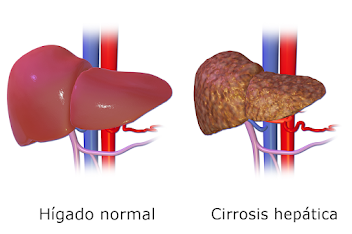What is Kidney transplantation
Kidney transplantation is a surgical procedure in which a healthy kidney from either a living or deceased donor is transplanted into a person with end-stage kidney disease or other severe kidney disorders. This procedure is considered a life-saving treatment for individuals whose kidneys are no longer functioning properly and who would otherwise require ongoing dialysis.
Here's an overview of the kidney transplantation process:
1. **Evaluation and Eligibility:**
- **Recipient Evaluation:** Individuals in need of a kidney transplant undergo a thorough medical and psychological evaluation to determine their overall health, compatibility with the transplant procedure, and ability to adhere to post-transplant care.
- **Donor Evaluation:** Living donors are usually family members or close friends of the recipient. They undergo a comprehensive evaluation to ensure they are healthy and that the donation is safe for them.
2. **Matching and Compatibility:**
- **Blood Type and Tissue Matching:** A crucial aspect of kidney transplantation is ensuring compatibility between the donor and recipient. Blood type compatibility and tissue matching help reduce the risk of rejection.
- **Crossmatching:** This involves testing the recipient's blood against the donor's kidney to check for any potential immune system reactions.
3. **Transplant Surgery:**
- **Living Donor Transplant:** If a living donor is involved, the surgical procedure typically involves removing one kidney from the donor and transplanting it into the recipient. Living donor transplants are preferred when possible because they offer the advantage of a better-matched kidney and potentially faster recovery.
- **Deceased Donor Transplant:** In cases where the kidney comes from a deceased donor, the transplant surgery takes place as soon as a suitable organ becomes available. The deceased donor kidney is surgically implanted into the recipient.
4. **Post-Transplant Care:**
- **Immunosuppressive Medications:** After transplantation, recipients are prescribed immunosuppressive medications to prevent the immune system from rejecting the new kidney. These medications need to be taken for the rest of the recipient's life.
- **Regular Follow-up:** Close monitoring is essential post-transplant to ensure the kidney functions properly and to address any potential complications. Recipients usually have regular follow-up appointments with their transplant team.
5. **Recovery and Lifestyle Changes:**
- **Recovery Time:** The recovery time after kidney transplantation varies, but most recipients can return to normal activities within a few weeks to a few months.
- **Lifestyle Changes:** Recipients are advised to make certain lifestyle changes, including a healthy diet, regular exercise, and avoiding behaviors that may harm the transplanted kidney, such as smoking and excessive alcohol consumption.
Kidney transplantation offers a significant improvement in quality of life for individuals with end-stage kidney disease compared to ongoing dialysis. While it is generally a successful procedure, there are risks and potential complications, and ongoing medical management is crucial for the long-term success of the transplant. The decision to undergo kidney transplantation involves careful consideration of medical, psychological, and ethical factors.
There are various types of kidney diseases
There are various types of kidney diseases, each with different causes, symptoms, and treatment approaches. Here are some common types of kidney diseases:
1. **Chronic Kidney Disease (CKD):**
- **Definition:** A progressive condition characterized by a gradual loss of kidney function over time.
- **Causes:** Diabetes, hypertension (high blood pressure), glomerulonephritis, polycystic kidney disease, and other conditions.
- **Symptoms:** Fatigue, swelling (edema), changes in urination, elevated blood pressure.
- **Treatment:** Managing underlying causes, lifestyle changes, medications, and, in severe cases, dialysis or kidney transplantation.
2. **Acute Kidney Injury (AKI):**
- **Definition:** A sudden and temporary loss of kidney function, often occurring rapidly within a few hours to a few days.
- **Causes:** Dehydration, severe infection, certain medications, kidney obstruction, and other factors.
- **Symptoms:** Decreased urine output, fluid retention, electrolyte imbalances, confusion.
- **Treatment:** Identifying and addressing the underlying cause, supportive measures, and sometimes dialysis.
3. **Polycystic Kidney Disease (PKD):**
- **Definition:** A genetic disorder characterized by the formation of fluid-filled cysts in the kidneys, leading to their enlargement and functional impairment.
- **Causes:** Inherited genetic mutations.
- **Symptoms:** Abdominal pain, high blood pressure, blood in urine, kidney stones.
- **Treatment:** Managing symptoms, blood pressure control, and, in some cases, kidney transplantation.
4. **Glomerulonephritis:**
- **Definition:** Inflammation of the glomeruli, the tiny structures in the kidneys responsible for filtering blood.
- **Causes:** Infections, autoimmune diseases, genetic factors, and other conditions.
- **Symptoms:** Hematuria (blood in urine), proteinuria (protein in urine), swelling, high blood pressure.
- **Treatment:** Addressing the underlying cause, medications, and sometimes immunosuppressive therapy.
5. **Diabetic Nephropathy:**
- **Definition:** Kidney damage resulting from diabetes, especially in individuals with poorly controlled blood sugar levels.
- **Causes:** Diabetes mellitus (Type 1 or Type 2).
- **Symptoms:** Proteinuria, swelling, elevated blood pressure.
- **Treatment:** Tight glucose control, blood pressure management, medications to protect the kidneys.
6. **Kidney Stones:**
- **Definition:** Hard deposits that form in the kidneys and can cause pain when passing through the urinary tract.
- **Causes:** Dehydration, diet, certain medical conditions.
- **Symptoms:** Severe back or abdominal pain, blood in urine, frequent urination.
- **Treatment:** Pain management, increased fluid intake, medications, and sometimes procedures to remove or break up stones.
7. **Nephrotic Syndrome:**
- **Definition:** A group of symptoms indicating kidney damage, including proteinuria, low protein levels in the blood, high cholesterol, and edema.
- **Causes:** Glomerular diseases, infections, systemic diseases.
- **Symptoms:** Proteinuria, edema, elevated cholesterol levels.
- **Treatment:** Identifying and managing the underlying cause, medications to control symptoms.
It's essential to note that these are just a few examples, and there are many other kidney diseases and conditions that can affect renal function. Early detection and appropriate management are crucial in preserving kidney health and preventing further damage. Individuals experiencing symptoms or at risk for kidney disease should seek medical attention for proper evaluation and diagnosis.






















